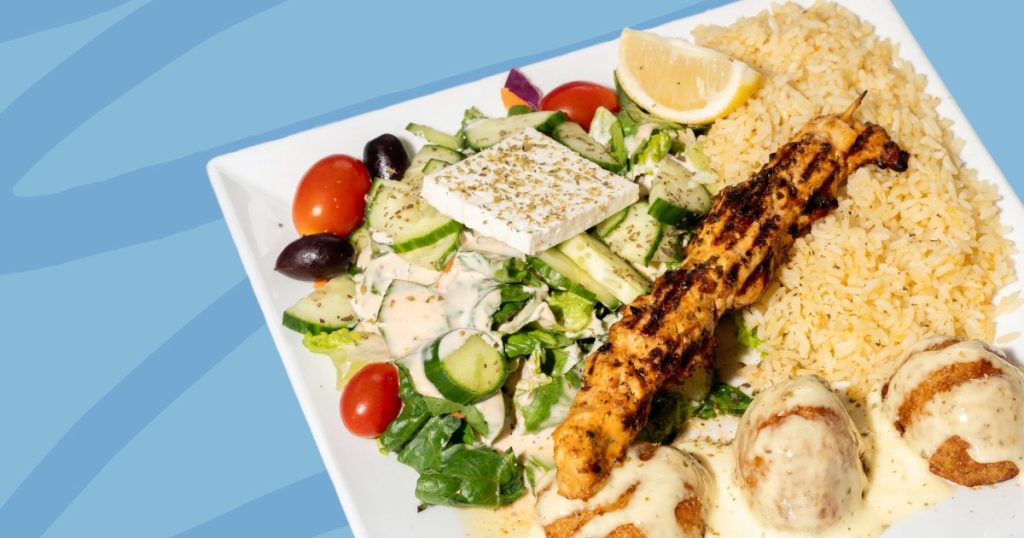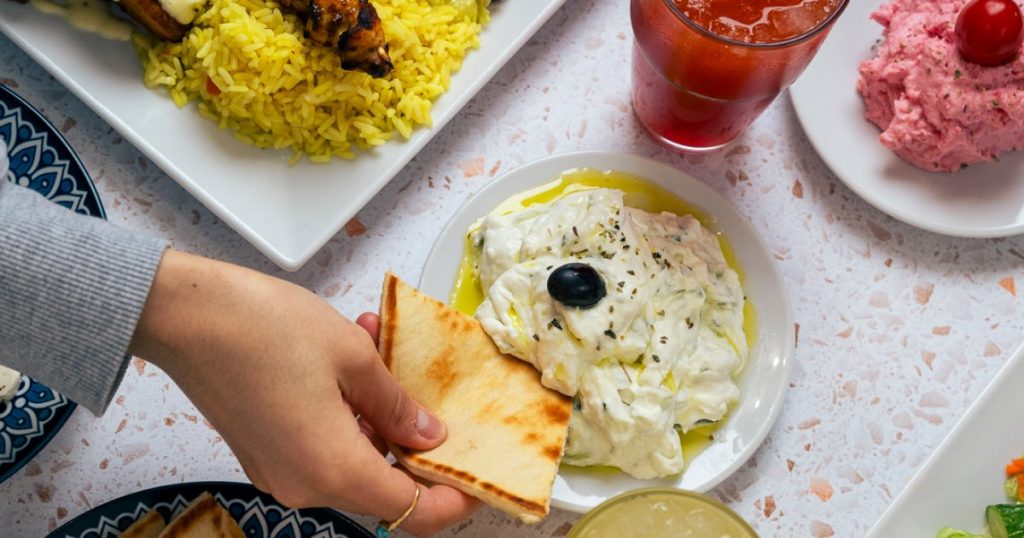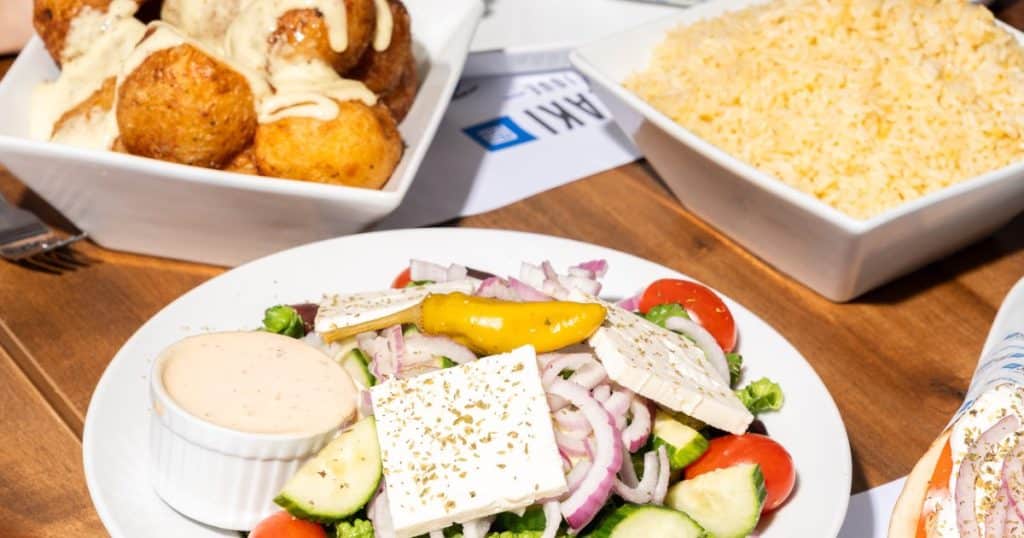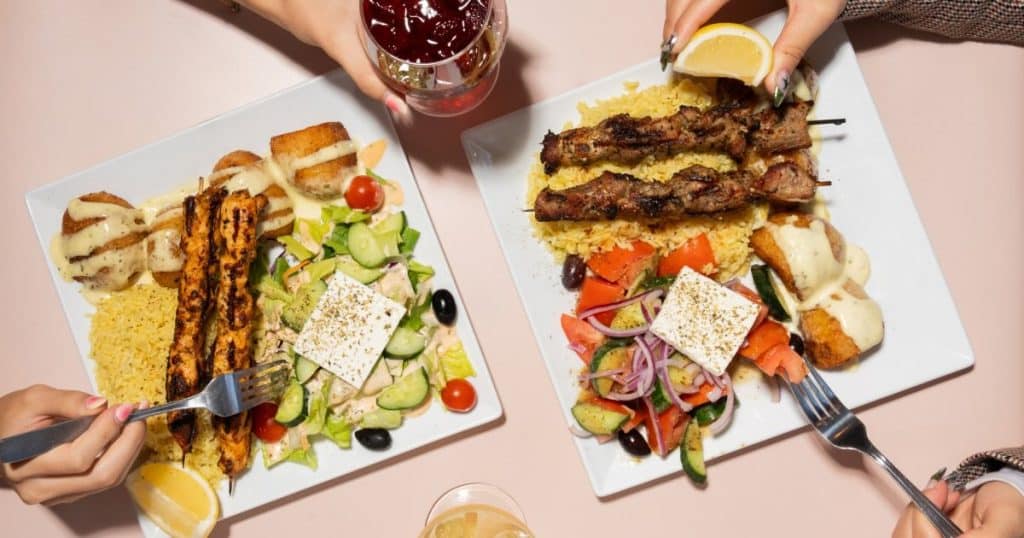Step into a real Greek kitchen, and you’ll quickly realize it’s not just a room for cooking, it’s the heart of the home. The air is rich with the scent of oregano and lemon, the table is loud with laughter and debate, and every ingredient has a backstory.
In these kitchens, you won’t just hear the sizzle of souvlaki or the scraping of spoons. You’ll hear sayings: sharp, tender, funny, wise, that capture the spirit of Greek cooking better than any cookbook ever could.
And while you may not be sitting in a seaside home in Crete, you’ll find that spirit alive in places that honor real tradition, where the food tells the same stories, seasoned with the same soul.
Here are five expressions you’ll only hear in a real Greek kitchen, and why they matter far beyond the stove.
1. (Fae, paidi mou!) – “Eat, my child!”
This is one of the most common things you’ll hear in a real Greek kitchen, and probably more than once. Whether you’ve just sat down or you’re already full, someone (usually a mom or grandmother) will lovingly insist you eat more.
In Greek culture, food is a way to show love. It’s not just about feeding someone, it’s about taking care of them. A full plate means someone cares. And if you’re offered seconds (or thirds), it’s because they want to see you happy and satisfied.
You’ll feel that same love and generosity when you order a classic souvlaki plate. It’s not just a meal, it’s a full experience. Juicy grilled meat, golden fries, fresh salad, pita, and tzatziki, all served in hearty portions, just like home.
Because in a real Greek kitchen, no one ever leaves the table hungry.
2. To fagito thelei meraki – “Good food needs heart and soul.”
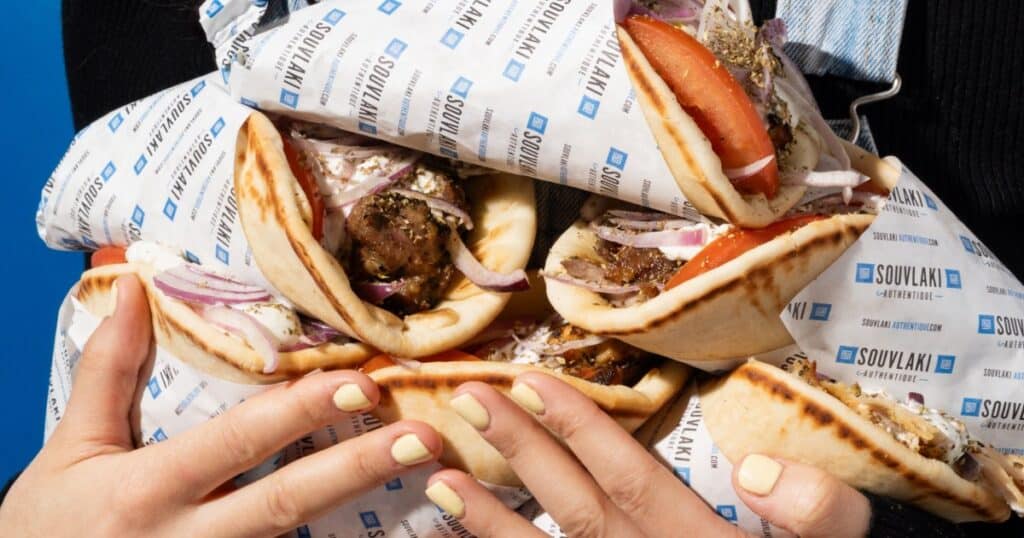
In Greece, cooking isn’t just about following a recipe, it’s about meraki, a word that doesn’t fully exist in English. It describes the feeling of putting your soul into something, doing it with care, devotion, and love. When someone cooks with meraki, every stir, every pinch of oregano, and every drizzle of olive oil means something.
This philosophy comes alive in traditional Greek cooking. You see it in hand-rolled pita breads, meats marinated overnight in herbs and citrus, and sauces made fresh each day, not because it’s the fastest way, but because it’s the right way.
3. Min tros viastika! – “Don’t eat in a rush!”
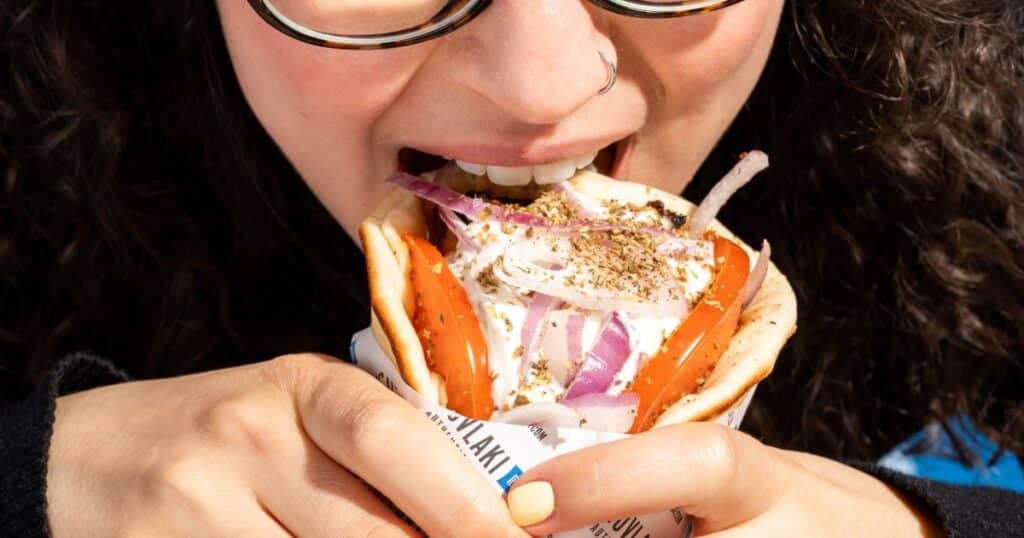
Greek meals are not fast, they’re layered. From meze to mains to something sweet at the end, the meal invites you to slow down. It’s not unusual for a single dinner to stretch over hours, with conversation and laughter flowing between bites.
For example, when you’re served a generous plate of Greek poutine, golden fries topped with marinated gyro meat, crumbled feta, and warm, rich sauce, you don’t devour it in silence, you pause, you pass it around, and you talk about how tender the meat is, how the oregano hits just right, and how you have to try it with a side of tzatziki. That’s the Greek way.
4. Katse na sto deixo pos ginetai – “Let me show you how it’s done.”
In a Greek kitchen, recipes aren’t just handed over, they’re lived through. This phrase, often said by a mother, father, or grandparent, is how generations of cooks have passed on their secrets, not through exact measurements, but through gestures, repetition, and a deep sense of knowing.
“Let me show you how it’s done” means standing beside someone while they knead the dough, marinate the lamb, or slice tomatoes just so. It’s watching how they rub olive oil into meat with their bare hands, make the perfect recipe for a Greek salad, or how they instinctively know when the pita is ready, not by timing it, but by listening for the right sizzle.
This hands-on teaching is the soul of Greek culinary heritage. And it’s what makes traditional food taste the way it does: like something real, like something earned.
Restaurants that honor these traditions don’t cut corners. You’ll taste it in the way the souvlaki is grilled, not on a flat-top, but over real charcoal. You’ll see it in the hand-rolled dolmades, the way the tzatziki has that fresh, garlicky kick only made-from-scratch yogurt can offer.
5. Ehume kai fagito gia ton dromo – “We’ve got food for the road, too.”
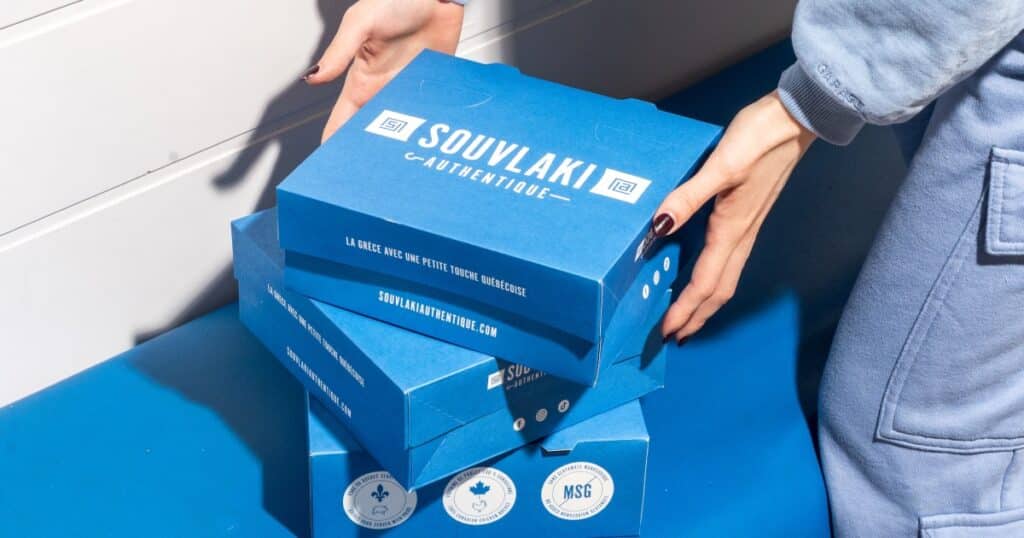
Whether you’re at a family home or a bustling taverna, there’s an unspoken rule: no one leaves hungry, not now, not later.
This phrase is part of the culture’s built-in generosity. It’s the grandmother wrapping up extra meatballs “just in case,” or the server slipping an extra piece of pita into your takeaway bag. Even if you insist you’re full, someone always makes sure you have a little something for the road.
This tradition lives on in restaurants that understand what it means to feed people well. From generous portion sizes to thoughtful takeout packaging, you’re not just grabbing a quick bite, you’re taking home a piece of the experience.
Conclusion
In a real Greek kitchen, food is more than sustenance, it’s storytelling, it’s tradition, and it’s love served hot. From expressions like “Eat, my child” to “Let me show you how it’s done,” each phrase carries centuries of cultural wisdom passed down through generations. Whether it’s the care poured into a marinade, the laughter shared around a slow meal, or the extra food handed to you for the road, these sayings reflect a way of life where food is a connection.
And that experience doesn’t have to wait for a trip to Greece, you can find it right here in Montreal.
Visit Souvlaki Authentique, where every dish is made with tradition, generosity, and the kind of warmth you’d expect from a Greek kitchen.




